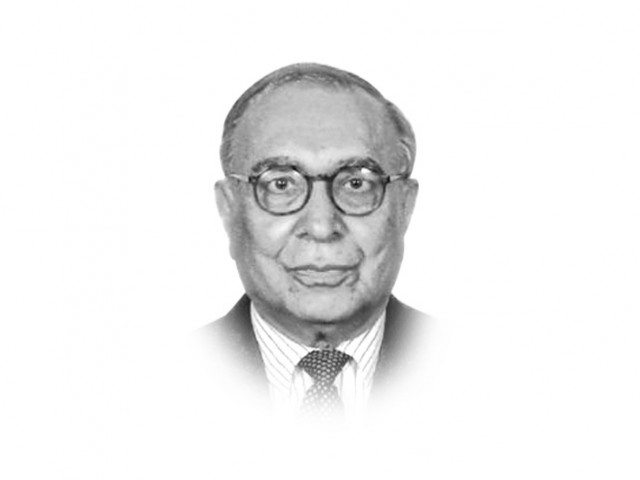Two-nation theory
Approaching the theory merely from the stand-point of western notions of nationhood is, at best, an abstract exercise.

Two-nation theory
In Pakistan the situation is different. Every element of its ancient heritage, and more recently, its history since Muhammad bin Qasim led an Arab army to Sindh and Multan, is under attack. The orthodox bigot does not want to know much about the 5,000 years before the fateful Arab expedition. On their part, some highly educated Pakistani liberals blithely sidestep causality and context and want to shake every pillar on which the state of Pakistan has rested during the last 65 years. Much too sophisticated to need a vision, they want millions of fellow Pakistanis to do so as well.
I do not intend to locate the article published in this newspaper on March 14, under the title “Founding Stories” by Feisal H Naqvi in the domain of this arrogant ‘liberalism’. But it did occur to me that it might have paid insufficient attention to the context of events between 1857 and 1947. Approaching the two-nation theory merely from the stand-point of western notions of nationhood is, at best, an abstract exercise.
South Asia’s struggle against alien rule is not without aspects that rile a modern mind. India was a not a nation state, but fragments of a collapsing empire when the wily British conquered it. Paradoxically, Great Britain’s triumph triggered off a renovation of existing belief systems. Hinduism went through an extraordinary renaissance, particularly in Bengal. Muslims were systematically weakened in the aftermath of 1857 as a religious community most likely to challenge the new empire. Once their initial shock of the retribution was contained, they began an internally contested search for salvation and rehabilitation. There was the spiritually fortified inward-looking Islamic seminary (madrassa) with a hallowed tradition of religious learning and the opposing, somewhat anglicised, open space of Aligarh.
Religious revivalism amongst Hindus and Muslims of India deeply affected Indian politics that had become possible as the paramount power developed a particular version of the western mission civilisatrice aiming at an eventual grant of limited ‘home rule’ to its Indian subjects. Mahatama Gandhi effectively sidelined secularists like Subash Chandra Bose; Nehru kept his brand of secularism alive through sheer tact in handling the ‘Bapu’; Abul Kalam Azad, a far-sighted political leader, foresaw the danger posed by the deepening of the communal divide by various contenders for power in a postcolonial era but was unable to do much even in the Congress. Documents now compiled by Lionel Carter reveal that in the first post-independence winter even Gandhi-ji, strongly supported punitive military action against Pakistan. Apparently, India considered invading Pakistan in October, as well as, in December 1947.
Amongst the Muslims, there was no clear concept of a nation as defined in western treatises; only a painful consciousness of a dispossessed and defeated ‘millat’. Iqbal was the bard par-excellence of its revival and also one of the principal exponents of a renaissance in the Arab-Islamic world. Jinnah came under his influence but retained his distinctive place as a workman-like constitutionalist who would, realistically, protect Muslim rights under an inevitable future majoritarian dispensation. A long and tortuous road wound its way through the Congress sessions, Jinnah’s Fourteen Points, the Nehru Report and the 1937 provincial governments to the articulation of the two-nation theory. It was more an attempt to create an imagined identity than a theory per se; it marked a shift to mass mobilisation of the Muslims. The last general election in undivided India gave this identity a form and substance that few had foreseen.
Jinnah understood the need to re-establish viable parameters for the two-nation theory in the postcolonial context of nation-building. He sought to do so as early as August 11, in his celebrated speech in Karachi. Public statements made by him as the first governor general of Pakistan have invited commentaries about a certain inherent ambivalence, but we also know from independent sources that he came down hard on those who demanded a theocratic state or, for that matter, talked –– like some hawkish political leaders in India –– of a complete exchange of population on communal basis. He easily remains the most eloquent defender of equal rights of religious minorities in Pakistan’s history. Jinnah’s characterisation of Hindus and Muslims as two ‘nations’ cannot be fully understood without mapping the dialectics of the politics that the Raj sanctioned and that snowballed as all stakeholders failed to build safeguards into it.
Published in The Express Tribune, March 19th, 2012.















COMMENTS
Comments are moderated and generally will be posted if they are on-topic and not abusive.
For more information, please see our Comments FAQ